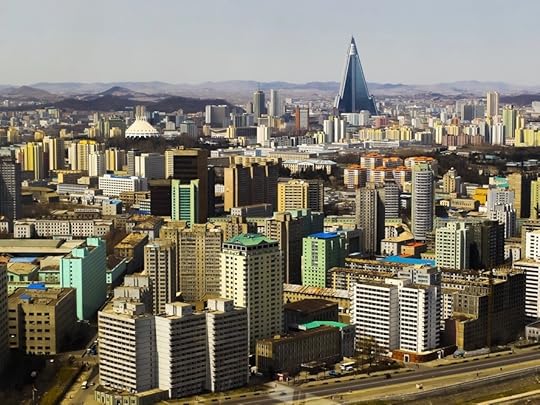Suddenly, Dialogue with North Korea is in Vogue

On Friday, Seoul’s Unification Ministry announced that North Korea had accepted the South’s invitation to hold a working-level meeting in the truce village of Panmunjom, in the Demilitarized Zone. The talks, scheduled for Thursday, are supposed to prepare the way for high-level discussions between the two Koreas, to be held in either Pyongyang or Seoul.
South Korea’s announcement comes in the immediate wake of failed attempts to arrange a historic meeting between UN Secretary General Ban Ki-moon and North Korea’s Kim Jong Un in Pyongyang. The get-together, which at one point looked like it would be held last week, never materialized. (Although Ban has just told South Korea’s YTN, a news channel, that the trip may still take place.)
The Unification Ministry’s announcement also comes after Beijing’s renewed push in September to restart the long-stalled six-party talks to “denuclearize” the North. Beijing has for years been trying to revive these discussions, which broke down in 2009 when Pyongyang walked away from them. South Korea’s chief nuclear envoy is now in the Chinese capital for consultations.
The new efforts at dialogue with Kim are taking place mostly without the US, which has adopted a policy of “strategic patience.” Critics bemoan what they characterize as Washington’s neglect, but the Obama administration’s disengagement is largely the result of the Kim regime’s bad faith, which caused the failure of the so-called Leap Day Deal of 2012. On February 29th of that year, the White House announced an agreement on missile launches and other matters, but Pyongyang quickly violated the terms Washington thought it had reached.
China’s efforts to renew ties with Pyongyang come at a time when relations between the two nuclear-armed states are suffering, largely because of the Kim regime, which began to downgrade ties at the end of 2013 with the execution of Kim’s uncle, Jang Song Thaek. Jang had served as the bridge between Pyongyang and Beijing, handling most dealings between the two capitals.
In addition to Jang’s abrupt departure, Kim’s executions of nearly 90 other senior political officials and military officers—not to mention the disappearances of an estimated 400 lesser officials—has eroded confidence in the regime’s stability.
There’s more. Choe Ryong Hae, Kim Jong Un’s emissary to Moscow, Beijing, and Seoul, has just disappeared from view. Significantly, his name was not included on the organizing committee for a state funeral held earlier this month. A South Korean spokesman said the omission of Choe’s name was unprecedented.The most recent reports indicate Kim had Choe “banished.”
No one outside a tight circle in Pyongyang knows for sure, but the disappearance of a high-ranking military officer, often considered the No. 2 figure in the regime, suggests further instability in the North’s ruling group.
Choe has been demoted before—some South Koreans have called him the “comeback kid” for his miraculous-looking reappearances—and banishments in North Korea are not always permanent, especially under the current Kim. Yet Choe’s apparent predicament suggests Pyongyang is not yet ready to be a reliable partner
Seoul’s diplomats may believe they can move from talks in Panmunjom to discussions at the highest level of both governments, but with North Korean officials disappearing without explanation, progress seems unlikely.
OG Image: Asia PacificKoreaNorth KoreaSouth KoreaAsiaUNUN
Asia PacificKoreaNorth KoreaSouth KoreaAsiaUNUN
Gordon G. Chang's Blog
- Gordon G. Chang's profile
- 52 followers



